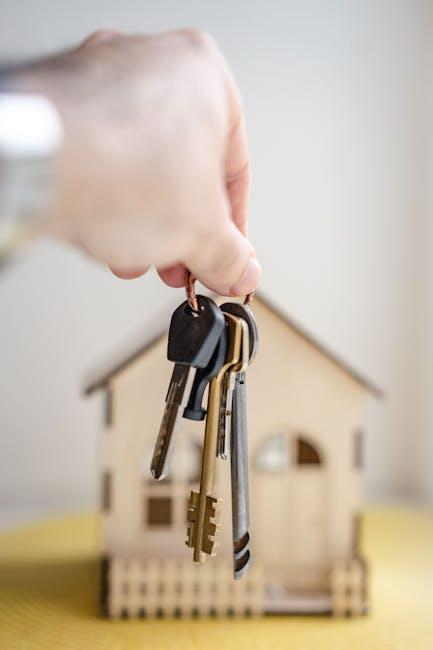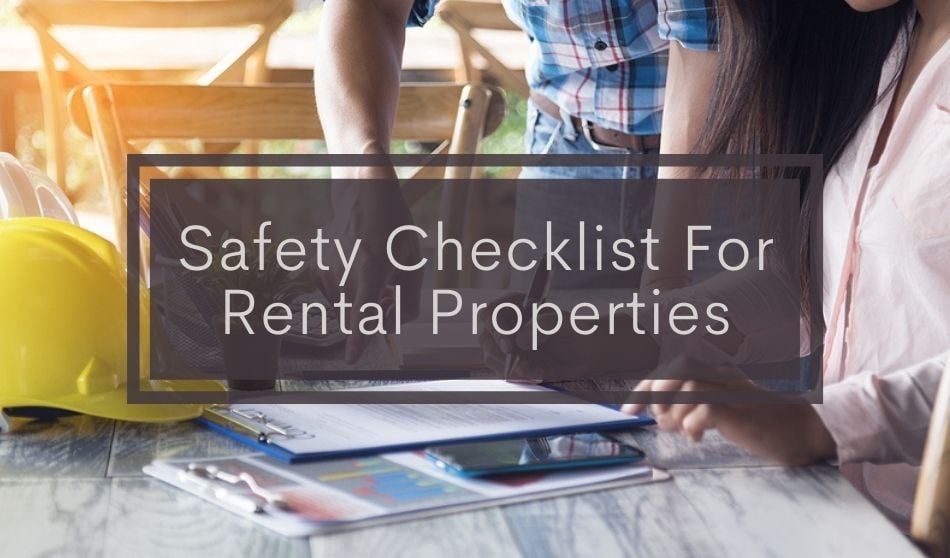
Have you ever walked into a rental property and thought to yourself, ”Wow, this place looks like it could be on an episode of Hoarders”? Well, before you dive headfirst into that sea of abandoned belongings, it’s important to understand the laws surrounding abandoned tenant property in New Jersey. Because let’s face it, you don’t want to end up on the wrong side of the law and have your landlord giving you the boot for mishandling someone else’s left behind treasures. So, grab your detective hat and let’s uncover the mysteries of abandoned tenant property in the Garden State.
Definition of Abandoned Tenant Property
Imagine you’re the landlord of a rental property, and your tenant suddenly disappears without a trace. What do you do with all the stuff they left behind? That’s where the concept of abandoned tenant property comes into play.
According to landlord-tenant laws, abandoned tenant property refers to belongings or possessions left behind by a tenant who has moved out without notice or a forwarding address. As a landlord, you have a legal responsibility to handle these items in a certain way.
So, what are you supposed to do with that funky old couch, the stack of unpaid bills, and the pet hamster left behind? Here are a few options to consider:
- Notify the tenant: Send a formal notice to the tenant’s last known address informing them that they have a limited time to retrieve their belongings.
- Store the items: Safely store the abandoned property for a designated period of time, allowing the tenant to claim it back.
- Dispose of the items: If the tenant doesn’t reclaim the property within the specified timeframe, you may have the right to dispose of it.
Responsibilities of Landlords
As a landlord, you have many important responsibilities to fulfill in order to keep your tenants happy and your property in top shape. Here are some key tasks you should stay on top of:
- Maintenance: Don’t be the landlord who disappears into the void when there’s a leaky faucet or a broken window. It’s your job to ensure that everything in the rental property is in good working order. And no, duct tape is not a suitable long-term solution.
- Communication: Your tenants are not mind readers, so it’s crucial to keep the lines of communication open. Respond to their inquiries in a timely manner and make sure they know how to reach you in case of emergencies. Don’t leave them wondering if you’ve been abducted by aliens.
- Legal obligations: Ignorance is not bliss when it comes to landlord-tenant laws. Make sure you know your rights and responsibilities, and don’t try to skirt around them. That “handshake agreement” won’t hold up in court.
Remember, being a landlord is not just about collecting rent checks. It’s about providing a safe and comfortable living environment for your tenants. So, roll up your sleeves and get ready to tackle those responsibilities head-on!
Procedures for Dealing with Abandoned Property
So, we’ve all been there, staring at a pile of abandoned property wondering what to do with it. Well, fear not! We have some procedures in place to help you tackle this hairy situation.
First things first, gather all the abandoned items and create an inventory list. This will help you keep track of everything and avoid any potential mix-ups. Trust me, you don’t want to accidentally give away someone’s prized possession to the wrong person!
Next, try to locate the owner of the abandoned property. We’re not suggesting you go all Sherlock Holmes on this, but a little detective work never hurt anyone. If all else fails, it might be time to bid adieu to those abandoned items.
Finally, if no owner is found, it’s time to make some tough decisions. You can either donate the items to a local charity, toss them in the dumpster (RIP abandoned property), or hold a yard sale and make some extra cash. The choice is yours, brave property wrangler!
Notice Requirements for Landlords
When it comes to being a landlord, there are a few notice requirements you need to keep in mind. These are the rules you need to follow if you want to avoid any legal trouble or angry tenants banging on your door at all hours of the night. So pay attention, because you don’t want to get caught with your pants down…figuratively speaking, of course!
First off, you need to make sure that you give your tenants proper notice before entering their abode. No one wants to be surprised by their landlord barging in unannounced, especially if they’re in the middle of binge-watching their favorite show on Netflix. So be a decent human being and let them know ahead of time when you plan to invade their personal space.
Secondly, if you need to evict a tenant, you’ve got to follow the proper notice procedures. You can’t just show up one day with a moving truck and expect them to be out by the end of the day. Nope, you’ve got to give them the required amount of time to pack up their stuff and find a new place to live. It’s the law, so don’t be a jerk about it.
Lastly, any changes to the terms of the lease need to be communicated to your tenants in writing. You can’t just casually mention it in passing while you’re fixing their leaky faucet. Nope, you’ve got to put it in writing, in a letter or email, so there’s a record of the new terms. That way, if they try to argue with you later on, you can pull out the evidence and shut them up real quick.
Disposal of Abandoned Property
So, you’ve stumbled upon a pile of abandoned property and have no idea what to do with it? Well, fear not, dear reader, for I am here to guide you through the wacky world of disposing of someone else’s junk.
First things first – assess the situation. Is the abandoned property in good condition? Is it something that could be salvaged and used for good? Or is it just a pile of old socks and broken furniture? Whatever the case may be, it’s important to take stock of what you’re dealing with before making any rash decisions.
Next, consider your options for disposal. You could donate the abandoned property to a local charity or thrift store, ensuring that it finds a new home where it will be loved and cherished. Or, if you’re feeling particularly bold, you could try selling the property online or at a yard sale. Who knows, you might just make a buck or two!
And remember, when in doubt, always check with local authorities to see if there are any regulations or guidelines for disposing of abandoned property. The last thing you want is to get slapped with a hefty fine for trying to do the right thing! So, go forth, brave soul, and dispose of that abandoned property with style and flair.
Liabilities for Landlords
Landlords have their fair share of responsibilities when it comes to managing rental properties. Here are some common liabilities that all landlords should be aware of:
- Maintenance: Landlords are responsible for ensuring that the property is in good condition and safe for tenants to live in. This includes regular maintenance and repairs to things like plumbing, electrical systems, and appliances.
- Health and Safety: Landlords must comply with health and safety regulations to provide a safe living environment for tenants. This includes ensuring that the property has proper ventilation, heating, and is free from hazards like mold or pests.
- Security: Landlords are responsible for providing secure locks on doors and windows to protect tenants from break-ins. They must also ensure that common areas are well-lit and monitored for safety.
- Legal Compliance: Landlords must comply with all local, state, and federal laws related to renting out property. This includes things like fair housing laws, eviction procedures, and building codes.
Keeping track of these liabilities can be daunting, but it’s all part of being a responsible landlord. Remember, happy tenants are more likely to stay long-term and take good care of your property. So, stay on top of your responsibilities and keep those rental checks rolling in!
Legal Remedies for Tenants
If your building’s heating system is on the fritz and your landlord is just giving you the cold shoulder, don’t worry! There are legal remedies available to tenants in situations like these. Here are a few options to consider:
First, you can always try to negotiate with your landlord. Maybe a friendly chat over a cup of coffee will do the trick. If that doesn’t work, you can escalate the situation by sending a written complaint or requesting a formal inspection from your local housing authority.
But if all else fails, it might be time to lawyer up! That’s right, taking legal action is always an option. You can file a lawsuit against your landlord for failing to provide a habitable living space. And trust me, nothing gets a landlord’s attention faster than a lawsuit!
Remember, as a tenant, you have rights. So don’t be afraid to stand up for yourself and fight for what you deserve. Whether it’s getting that leaky faucet fixed or finally forcing your landlord to deal with that pesky mold problem, you have the power to make sure your living situation is up to par. So go ahead, get legal, get even, and get that landlord in line!
FAQs
How long does a landlord have to wait before disposing of abandoned tenant property?
Well, it’s a bit like waiting for your crush to text you back - you can’t just jump the gun! In NJ, landlords have to wait at least 30 days before they can start tossing out all that junk left behind by their once beloved tenant.
What should a landlord do if they suspect a property has been abandoned?
Think of it like CSI: New Jersey. Landlords should first try to contact the tenant using all available means – smoke signals, carrier pigeons, you name it. If there’s no response after 10 days, then it’s time to call in the cleanup crew.
Can a landlord sell abandoned property to recoup unpaid rent?
It’s like that episode of Storage Wars, but with less drama. In NJ, landlords can sell abandoned property after waiting the mandatory 30 days. They can use the profits to cover unpaid rent, repair damages, or maybe even treat themselves to a fancy dinner.
What are some common mistakes landlords make when dealing with abandoned property?
Oh, where do I begin? Some landlords think they can just throw everything in the trash without a second thought. Others forget to properly document the process, leading to potential legal troubles down the road. It’s like trying to navigate the Jersey Turnpike without a GPS – a recipe for disaster.
Is there any way for tenants to reclaim their abandoned property?
Well, it’s not exactly like finding a lost sock in the laundry. If a tenant realizes their mistake and wants their stuff back, they can contact the landlord and arrange to pick it up. Of course, they’ll probably have to pay for any storage or removal fees incurred in the process. Lesson learned!
Don’t Leave Your Stuff Behind, Because NJ Law Will Find!
Next time you decide to skip town without taking your favorite toaster oven, remember that the law in New Jersey has some strict rules about abandoned tenant property. So, pack up your belongings and take them with you – otherwise, you might come back to a surprise visit from the legalities of the Garden State. Don’t say we didn’t warn you!









